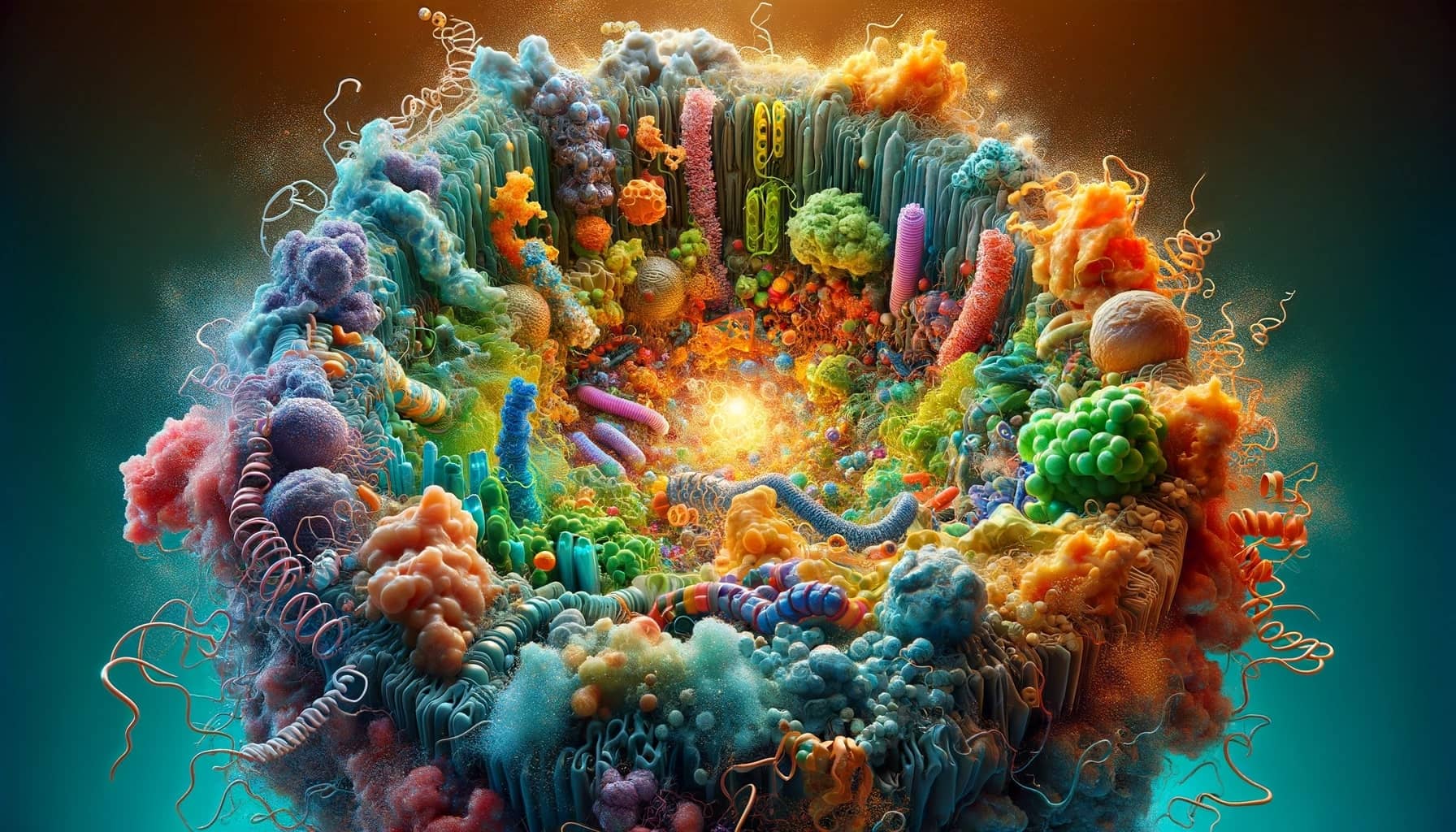
The Unraveling Thread: How Protein Balance Affects Aging
Proteostasis, or keeping proteins in balance, is really important for our cells to stay healthy. It’s closely linked to aging and diseases like ALS (amyotrophic lateral sclerosis), Alzheimer’s, Parkinson’s, and cataracts. Proteostasis is all about making sure proteins in our cells are properly shaped and working right. But as we get older, this balance gets thrown off. We end up with damaged or misshaped proteins that clump together, which can be harmful.
Why Proteostasis Fails as We Age
Our cells have a complex system to make sure proteins are made and folded correctly. As we age, this system starts to fail. This can happen because of more mistakes in making proteins, slower protein-building processes, or damage from things like oxidation. This problem is clear in diseases like Alzheimer’s, where proteins misfold and form clumps, overwhelming the cell’s cleanup systems.
Cells have two main ways to check protein quality – the unfolded protein response (UPR) in a part of the cell called the endoplasmic reticulum (ER) and the systems that break down proteins, like the proteasome and lysosome. With age, these systems work less well, leading to more damaged proteins. For example, older brains have been shown to have less proteasome activity.
Autophagy’s Role in Proteostasis
Autophagy is how cells clean up and recycle parts, and it’s key to keeping proteins in balance. This includes specific ways to break down proteins, like chaperone-mediated autophagy (CMA), where certain proteins are sent to the lysosome to be broken down. In aging, these cleanup processes slow down, like a drop in LAMP2A (important for CMA) seen in older mice.
How Proteostasis Impacts Aging
Disruptions in proteostasis don’t just happen because we age; they can actually make aging happen faster. For instance, when fruit flies eat things that damage proteins, like AGEs or lipofuscin, they live shorter, less healthy lives. But boosting proteostasis can help delay aging. Studies have shown that making the protein cleanup systems work better can improve health and extend life in different creatures.
Proteostasis in Human Health
There’s growing interest in targeting proteostasis to treat diseases in humans. For example, a study on ALS patients found that guanabenz, a blood pressure drug, might slow down the disease by affecting how proteins are made and handled in stress.
Looking Ahead in Proteostasis Research
Studying proteostasis is really promising for helping us live healthier, longer lives. It suggests that by helping our cells better manage proteins, we might delay diseases and the effects of getting older. Future research here could lead to new ways to fight aging, showing just how important protein balance is for our health and longevity.
